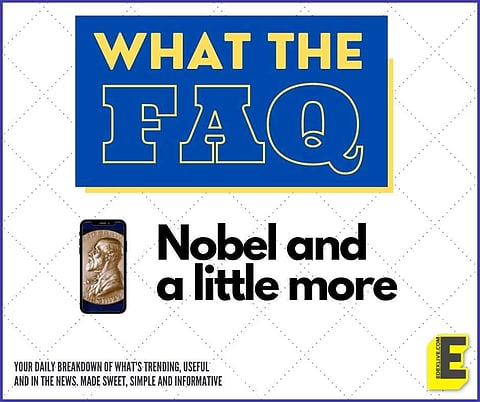

As the Nobel season opens on October 4, there are rumours that the first award for Physiology or Medicine will be given to the researchers of the COVID-19 virus or the vaccine. As we inch closer to finding out who the award goes to, we take a look at a few questions you might have and try to answer them.
What are the Nobel Prizes all about?
When scientist, businessman and entrepreneur
Who was Alfred Nobel?
Alfred Bernhard Nobel was a Swedish chemist, engineer, inventor, businessman, and philanthropist. Before the prizes made him a world-known name, he held 355 different patents, and dynamite was the most famous of the lot. He also owned Bofors. He revamped the company from primarily an iron and steel producer to a major manufacturer of cannon and other arms.
Which of the prizes was introduced later?
In 1968, Sveriges Riksbank (
Have the prizes ever been skipped?
The first Nobel Prizes were awarded in 1901 and it's been an annual tradition since then. But there were no awards given out for a few years during World War I (1914-1918) and World War II (1939-1945).
How many women have received the award?
A total of only 58 women have been awarded so far, Marie Curie being the only one to be awarded twice. The number of women awardees have gradually increased over the years — from just four in 1901-20 to 11 in 1981-2000 to 28 in the past 20 years.
Who is the youngest Nobel Laureate?
Malala Yousafzai was all of 17 years when she was awarded the Nobel Peace Prize in 2014, making her the youngest Nobel Laureate ever.
